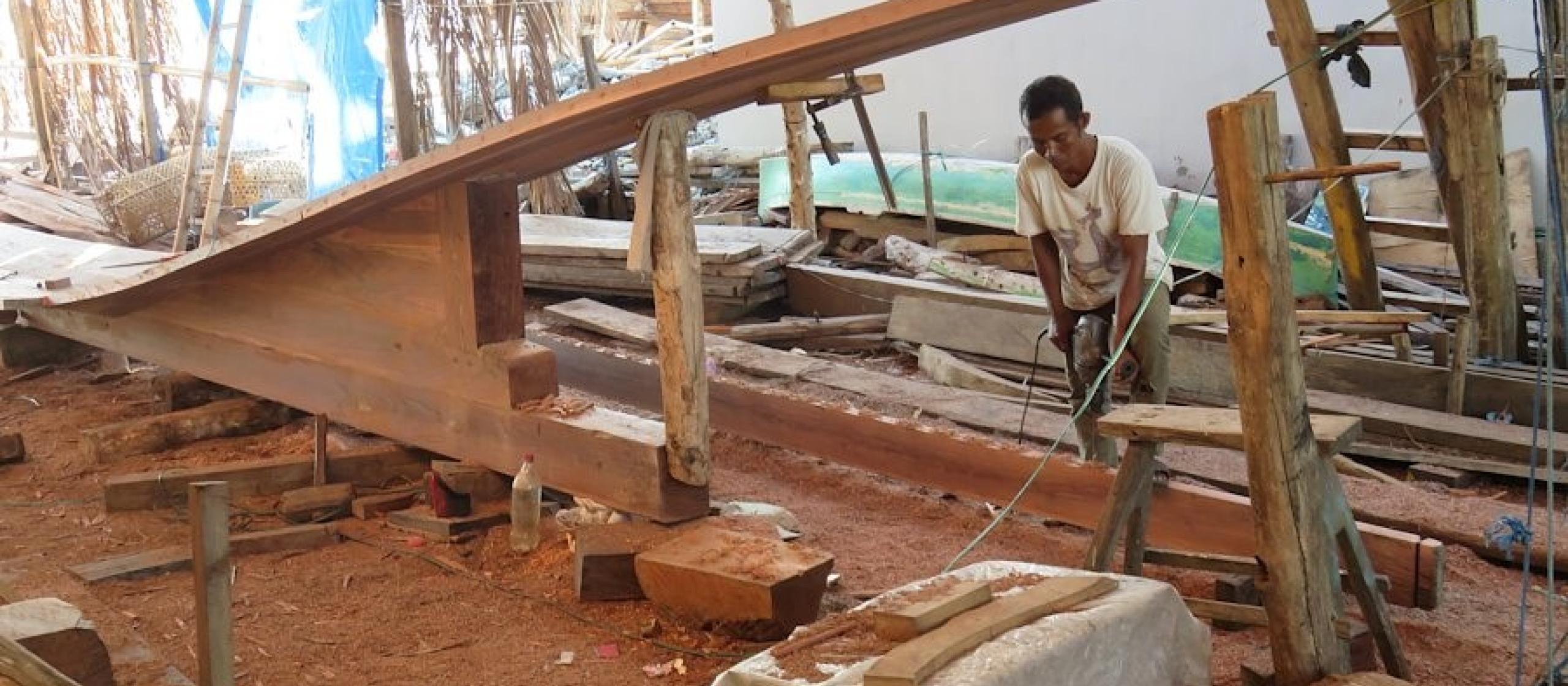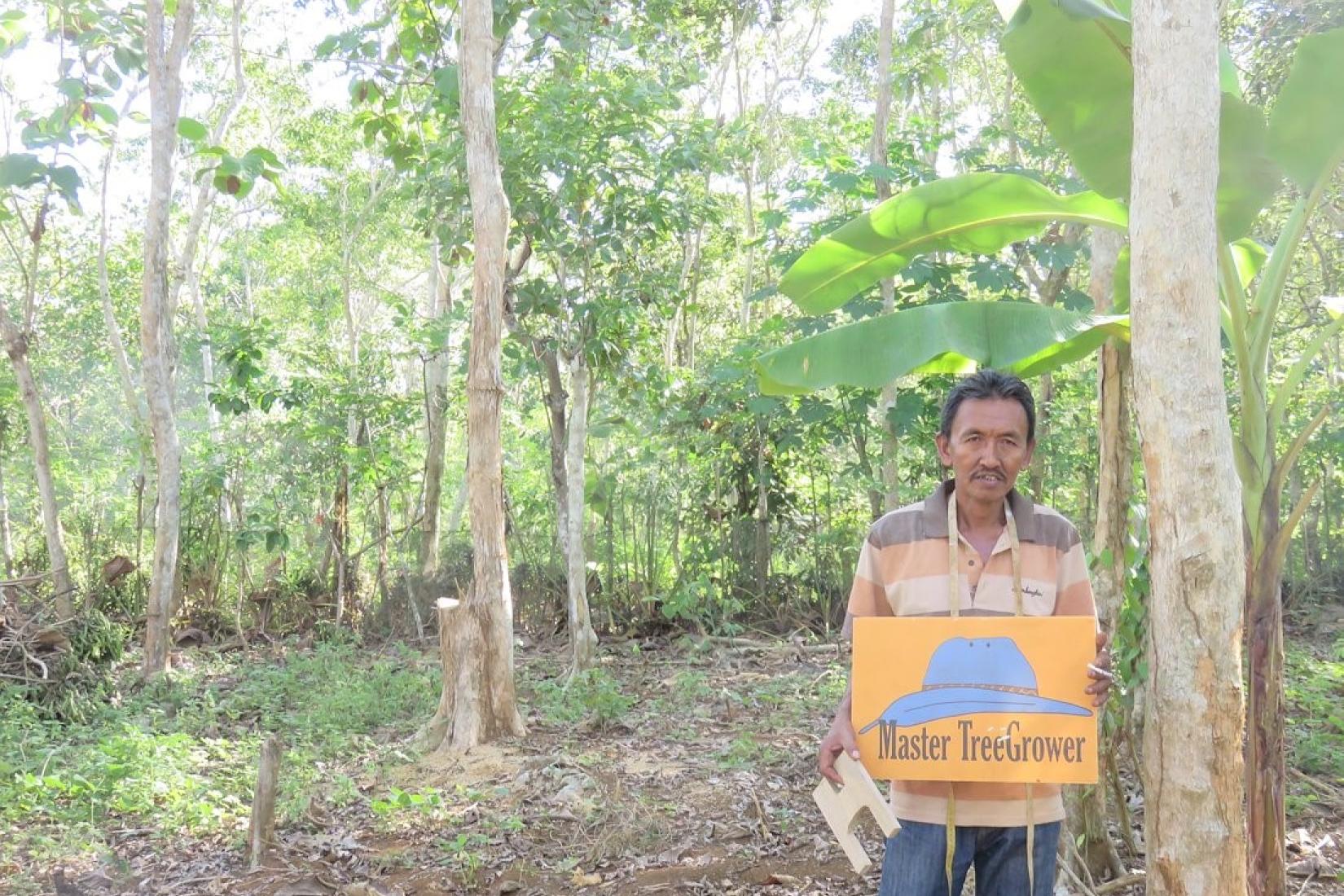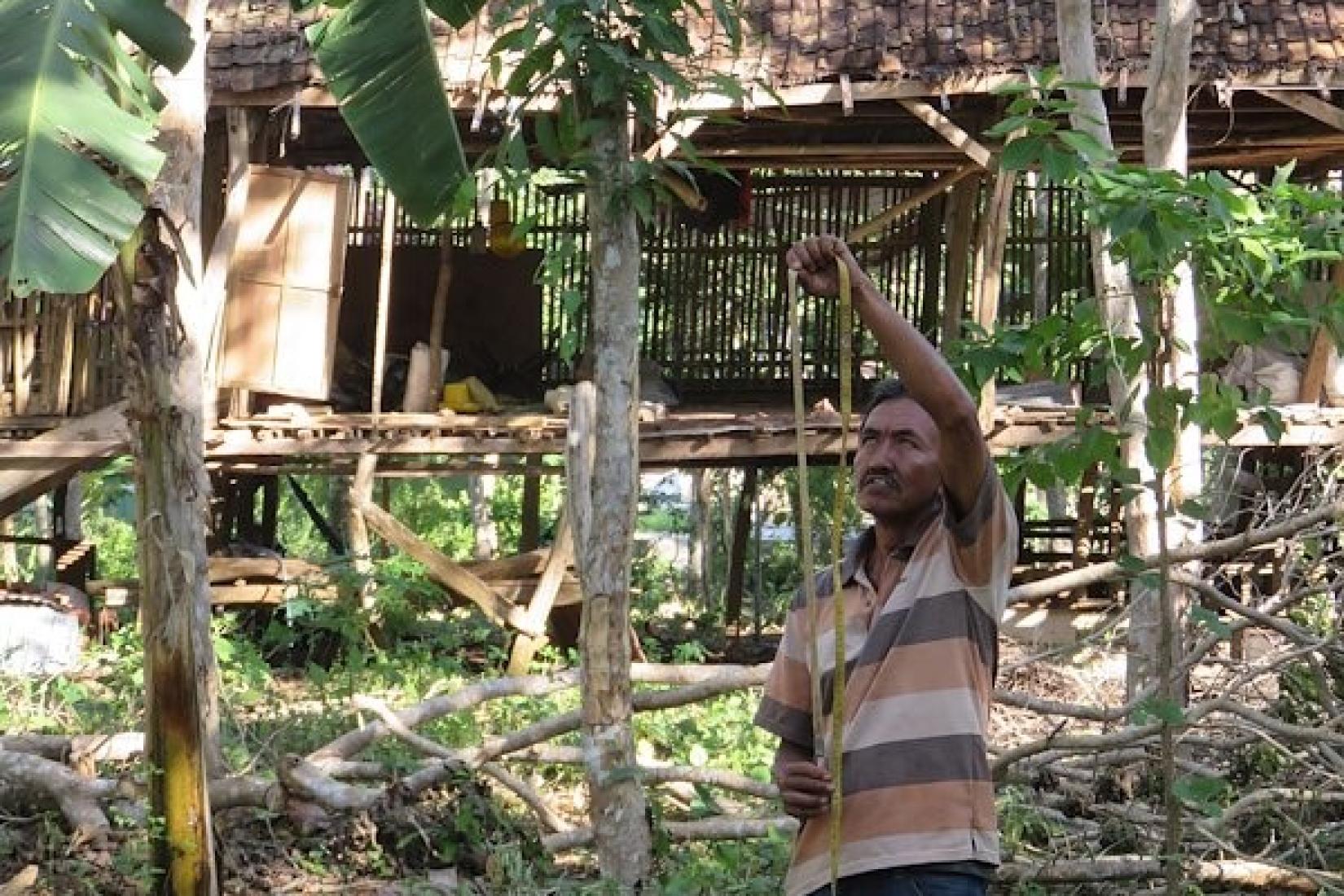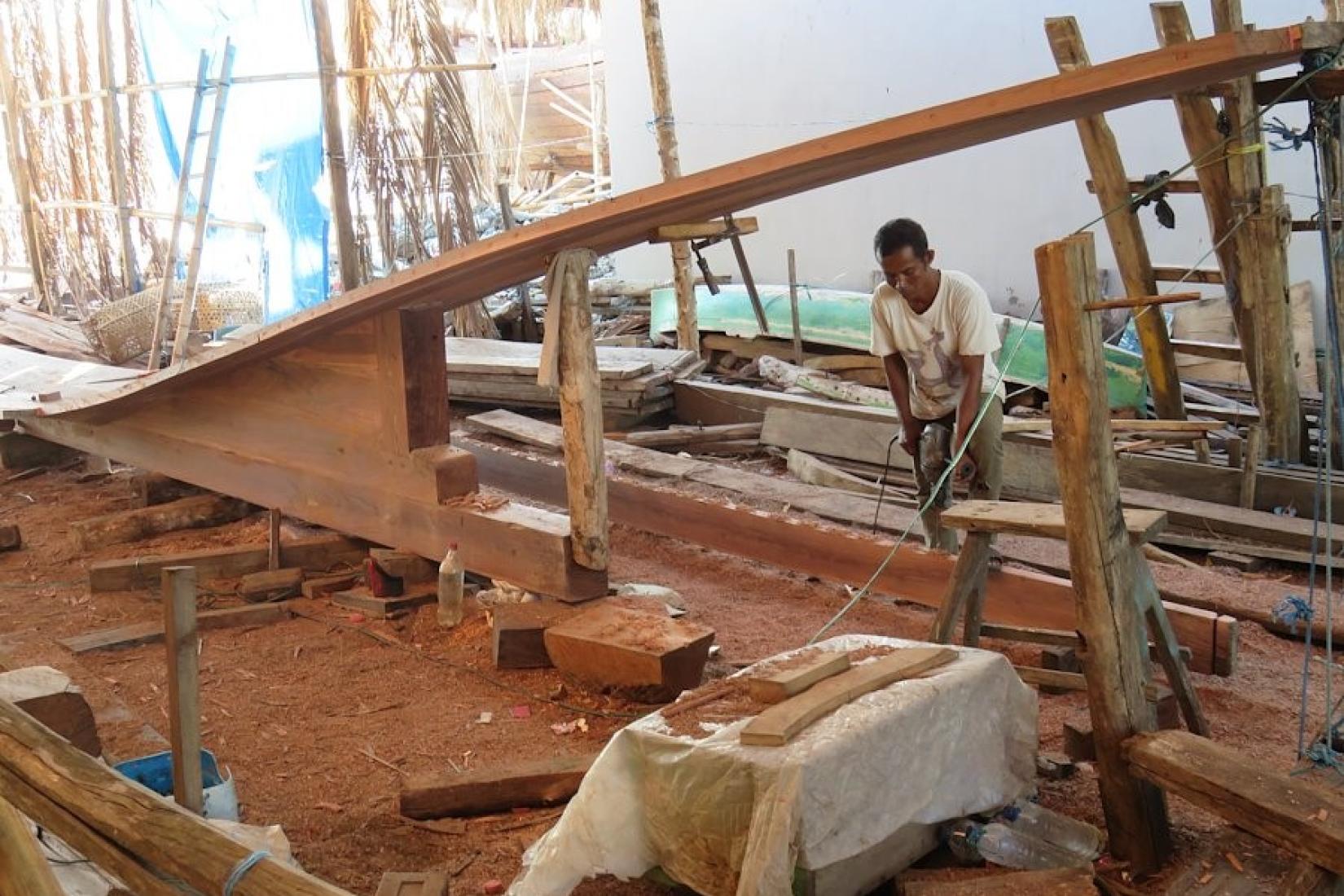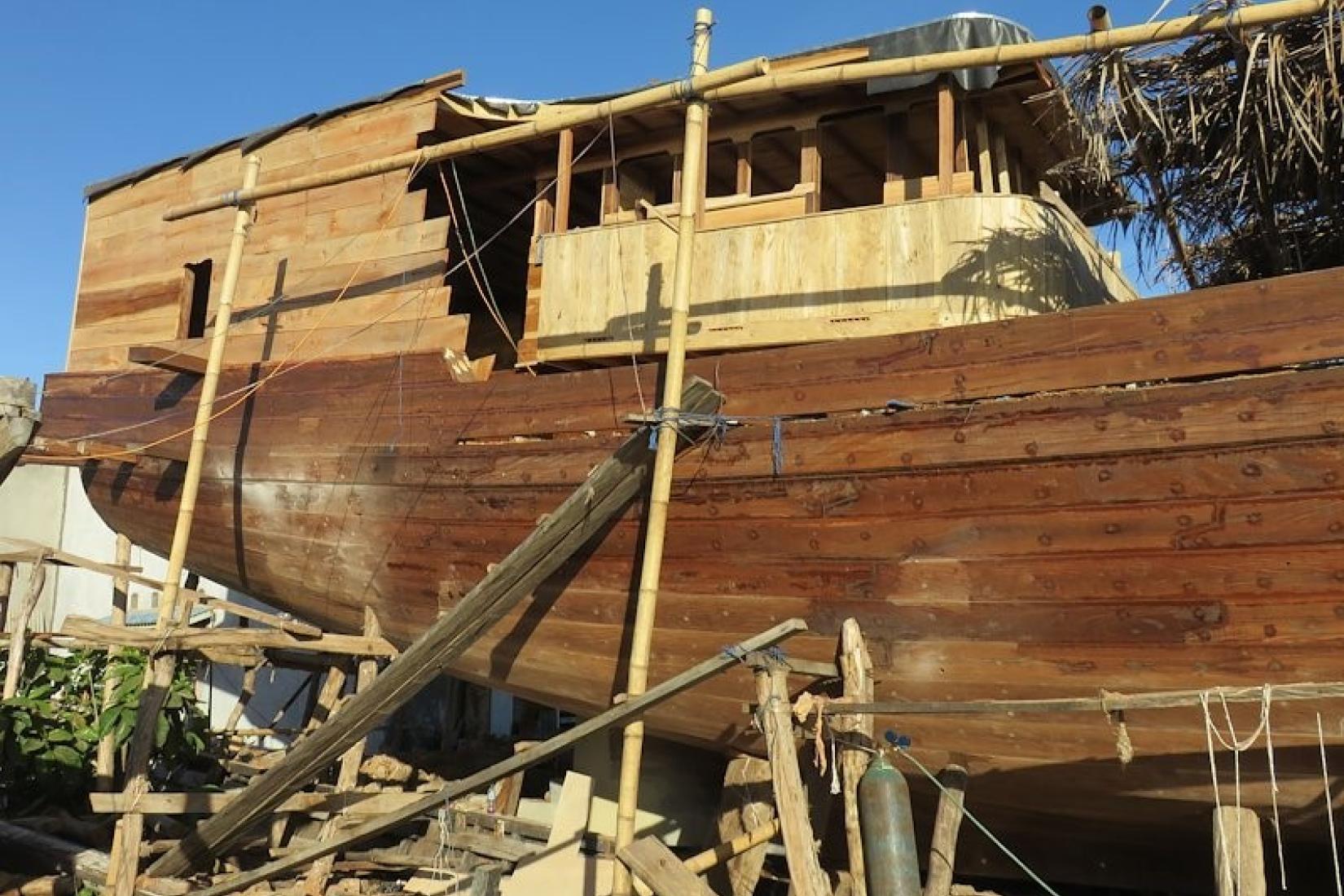An evaluation of the Master Tree Grower pilot program at Bulukumba, found many farmers were more confident in measuring the quality and volume of timber, assessing the market value of their timber and negotiating sales, thereby receiving higher prices.
Where previously farmers would be paid about IDR 500,000 per tree harvested, they are now receiving up to IDR 1.3 million per tree—a 160 per cent price increase. The evaluation also found the scaling-out of the knowledge and skills gained by participants to neighbouring farmers was substantial—for every farmer trained, another four farmers also changed their tree management practices.
At Benjali, about 25 farmers have formed a forest farmer group and are working with a reputable trader to achieve a fair price for their improved quality timber. By working through the forest farmer group, the trader can ensure the quantity and quality of timber for his customers.
One of the main markets for the farmers’ timber is the traditional Phinisi boat builders located in Bontobahari village on the South Sulawesi coast. These craftsmen carry on a centuries-old tradition, with each wooden boat taking up to 18 months to build.
